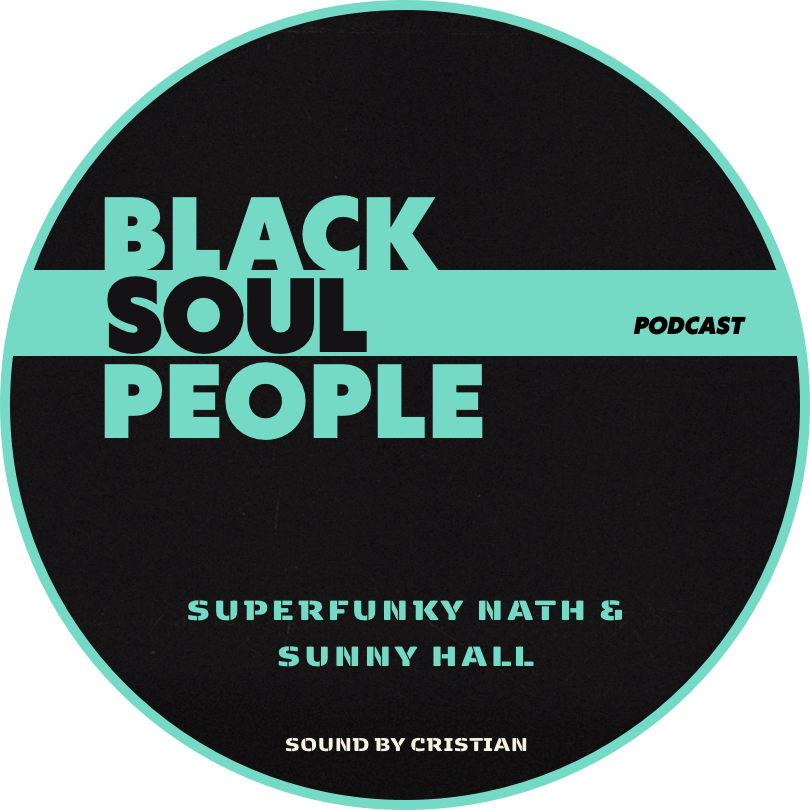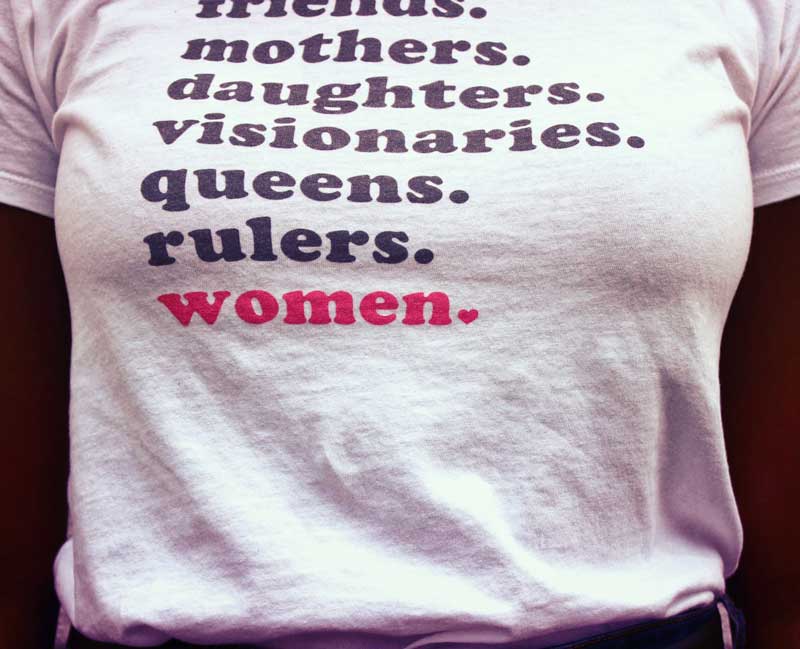


I don’t really know what “sorority” stands for, or even if it is a term I can identify with. If sorority is to be compared to the solidarity among all women from a universal point of view, I do not think that, potentially in the present world we live in, all women are my sisters or they consider me as their equal.
Firstly, because historically White women or White feminism have oppressed POCs and continue to do so today and secondly, because I regularly receive racist attacks on the part of some White women. Consequently, I will speak here about solidarity or love between racialized women, more than a kind of universal solidarity which for me does not exist.

It is important for me to have role models and inspirations I can depend on. I think we cannot build neither the present nor the future without being aware of the past and the various struggles and fights that may have been waged. Hence, the importance of the models of “big sisters” or “moms/aunty” in my positioning related to activism.
I hope no one will be offended by the term “mom/aunty”, I use here in an affectionate and respectful sense.
I have as women role models well-known intellectuals and activists, but also women who are part of my entourage whom I personally consider to be great heroines.
This year, I had the opportunity to meet two of the great anti-colonial and anti-racist activists, Françoise Vergès and Houria Bouteldja with whom I shared my doubts, my questionings, my criticisms and hopes. Their refined critical views on the current situation gave me strength to project myself and follow through with my personal fight and conception of activism.
To have the privilege to observe and follow since my teenage years women like Christiane Taubira, a Black woman from the French Guiana, with her powerful oratorical skills, her refined culture, her strength being fearless while confronting the different political currents in the largest republican instances; was also for me a very important driving force.
I could also count on the advice and the critical eye of people close to me. I will mention two: an Afro Caribbean who will recognize herself and another Moroccan woman who are also dealing with motherhood which undoubtedly explains their fighting spirit. I spend longs hours talking, sharing ideas with them.
I personally think that these exchanges and different role models are indispensable and necessary since I consider myself an heiress of all these women.
I couldn’t possibly express myself or have the place I currently have in this world without the past struggles of racialized women. Hence, the enormous respect I have for them.
We must be aware of yesterday’s struggles to be used as guidelines for those of today and tomorrow and remember that we are indebted for their past fights in our contemporary positions.

I have as women role models, well-known intellectuals and activists, but also women who are part of my entourage whom I personally consider to be great heroines.

Secondly, I would like to talk about the help and the moral and psychological support of sisters of my same condition, they for my part are also indispensable for our emotional stability in our daily life as well as in our endeavours. It is difficult to help others when we are not at peace with ourselves.
Racism is not something punctual, if not a tireless structural system which we must confront in our everyday lives. The insults, the repeated attacks, the constant discrimination, can affect our people and lead to saturation points or losing your shit, excuse my French.
Love and support between racialized women are therefore essential.
This support can be expressed with small gestures from unknown women, or can manifest on a much deeper level with the people around us with whom we can emotionally discharge our problems, our crises, our torments.
We take turns being the person in need of support and the one listening, reassuring. For my part, I do not see any obligation, having to listen to others when they need it, I think it goes without saying.
You’ll ask me, how complete strangers can manifest these small gestures?
I will give a quick example here that may seem totally insignificant if it is taken into account as unique but all these small daily details repeated to the infinite can formas a whole a wave and constitute a great force for solidarity.
A few weeks ago, I was in a concert where several Senegalese artists were invited, the audience was therefore constituted of more POCs than usual.
I’m small in stature, so I have to constantly keep an eye on what’s going on around me so as to not get knocked by White guys, and I insist on the term White because racialized men are also careful with me.
Where is the love between racialized women in there?
As I walked towards the stage, I met with several of these women and all of them seeing me, made complicit smiles and were mindful of my presence as I crossed the crowd. When I reached the spot to watch the concert, I was constantly jostled by a tall White guy despite my insistence in telling him to be careful. Immediately, a racialized woman who was next to me, put a hand on my shoulder and asked :
« Are you okay?
Is everything ok? ».
I smiled at her and said :
« Yes, thank you. »
This kind of small details that appear insignificant to ordinary mortals are essential for me in what the daily mutual aid and benevolence between racialized women represent.
From a deeper or emotional point of view, I happen to have moments of overwhelming doubts, of important breaking points that affect me personally. I often think that I am privileged, therefore it is not my place to complain knowing that other people of my same condition are in far more complicated contexts than mine, but as I said before, it is important to be well with oneself if we want to be helpers for others; in this lies the importance of the love between racialized women.
I’ve always had several of these women around me who have been there to listen to my frustration and anger, not there to tell me that I was overreacting or to judge me, finding the right words to reassure me in the most difficult moments.
A solid foundation is needed to keep you emotionally stable and not lose track. The fight against racism can become very frustrating and a trigger for anxiety outbursts, because of the very system we face, hence the importance of love and support among racialized women.
This is what Solidarity or Love between Racialized Women represents for me, it is an unconditional and powerful love that allows me to advance healthily in my struggles a little more every day.
Finally, being an heiress of anti-colonial or decolonial movements, I will quote Louisa Yousfi who tells us about the position of racialized women in the struggle:
“In the whole anti-racist and decolonial movement, from the first emigration struggles to those of today, never have women been so present, active, committed and visible on the field of struggles. Let us Look around, in all the organizations that come from this anti-racist and decolonial movement which we claim, in their most decision-making bodies, in their strategic director, the women of immigration are undeniably the ankles of the fight that is currently going on before our eyes. Who would dare look at us, anti-racist and decolonial activists, and tell us that our specific interests as women are crushed in a struggle that ignores them when we ourselves are at the head? ”

